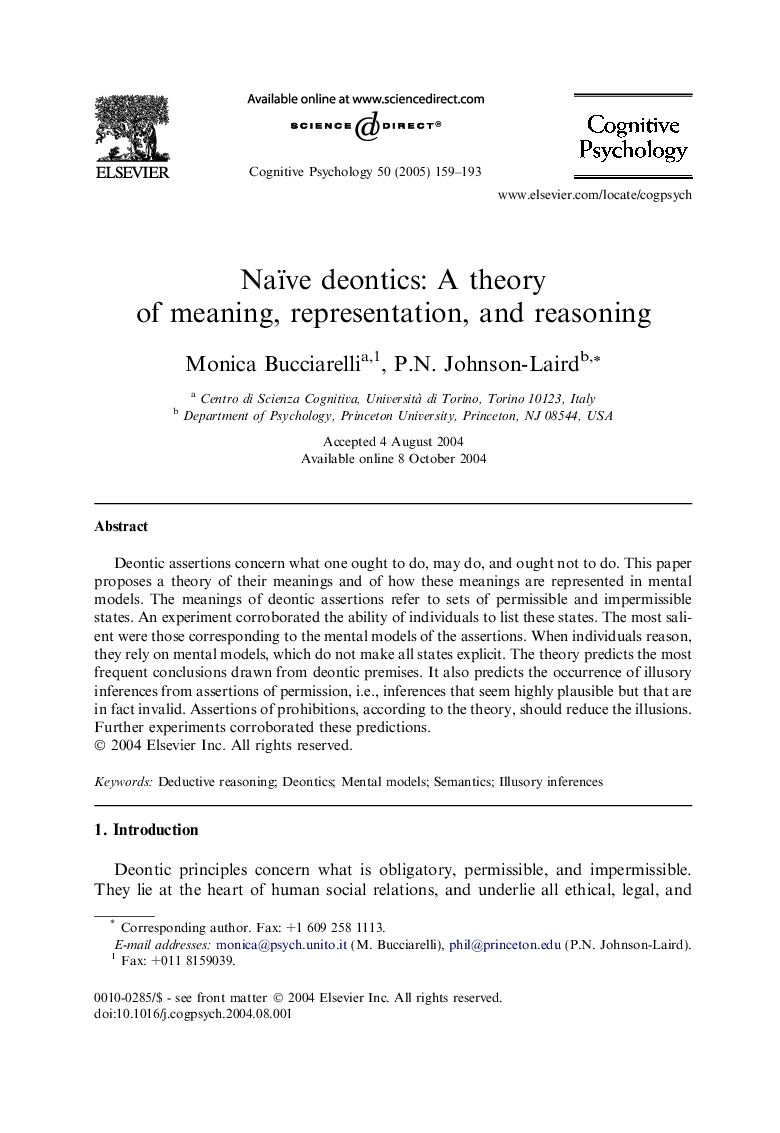| Article ID | Journal | Published Year | Pages | File Type |
|---|---|---|---|---|
| 10452493 | Cognitive Psychology | 2005 | 35 Pages |
Abstract
Deontic assertions concern what one ought to do, may do, and ought not to do. This paper proposes a theory of their meanings and of how these meanings are represented in mental models. The meanings of deontic assertions refer to sets of permissible and impermissible states. An experiment corroborated the ability of individuals to list these states. The most salient were those corresponding to the mental models of the assertions. When individuals reason, they rely on mental models, which do not make all states explicit. The theory predicts the most frequent conclusions drawn from deontic premises. It also predicts the occurrence of illusory inferences from assertions of permission, i.e., inferences that seem highly plausible but that are in fact invalid. Assertions of prohibitions, according to the theory, should reduce the illusions. Further experiments corroborated these predictions.
Related Topics
Life Sciences
Neuroscience
Cognitive Neuroscience
Authors
Monica Bucciarelli, P.N. Johnson-Laird,
